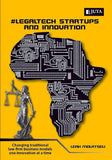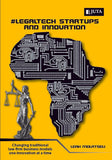
Gender, Law and Justice 2e (e-book)
About this publication
Nearly twenty years after the publication of the first edition of Gender, Law and Justice, our society remains largely untransformed, and women, especially those who live at the intersection of multiple inequalities, continue to bear the brunt of this. The first edition of the book was widely prescribed and used by students, academics and practitioners. This second edition traverses the significant legal gains for women in the law and identifies the legal and practical challenges which remain. The law can be a blunt tool to redress systemic and intersectional gender inequalities, and some of the initial optimism of the 1990s has given way to a degree of cynicism over the possibilities of legal change.
Nevertheless, feminist lawyers and advocates have consistently engaged the law to push the boundaries of liberal legalism in pursuit of transformative legal change. This edition explores these tensions and developments, updating material from the previous edition and adding new theoretical perspectives, materials and chapters. It continues to rely primarily on South African academic materials and research, and to focus on the realities of women’s diverse lived realities. In doing so, our aim is to ensure that the law, so far as it is able, addresses the concrete social, cultural and economic conditions that perpetuate women’s inequality in our society. We hope this book will be a practical, theoretical and educational tool in the ongoing quest for gender equality and justice.
Content
Preface and Acknowledgements
Information about authors
Chapter 1: Introduction, concepts and theories
Chapter 2: Gender, equality and international human rights
Chapter 3: Equality and Constitution
Chapter 4: Women, the state and citizenship
Chapter 5: Gender, the economy and women’s work
Chapter 6: Gender ad access to property
Chapter 7: Women, family and the community
Chapter 8: Women’s bodies: Autonomy and freedom and security
Cases
Legislation and regulations
International Sources
Interest / Benefit to
- Academics, researchers and undergraduate and postgraduate students across a broad spectrum of faculties at higher education institutions
- Legal practitioners, civil society organizations, policy and decision-makers in government and business.
- Human rights and gender activists
Community centers and libraries
We Also Recommend




